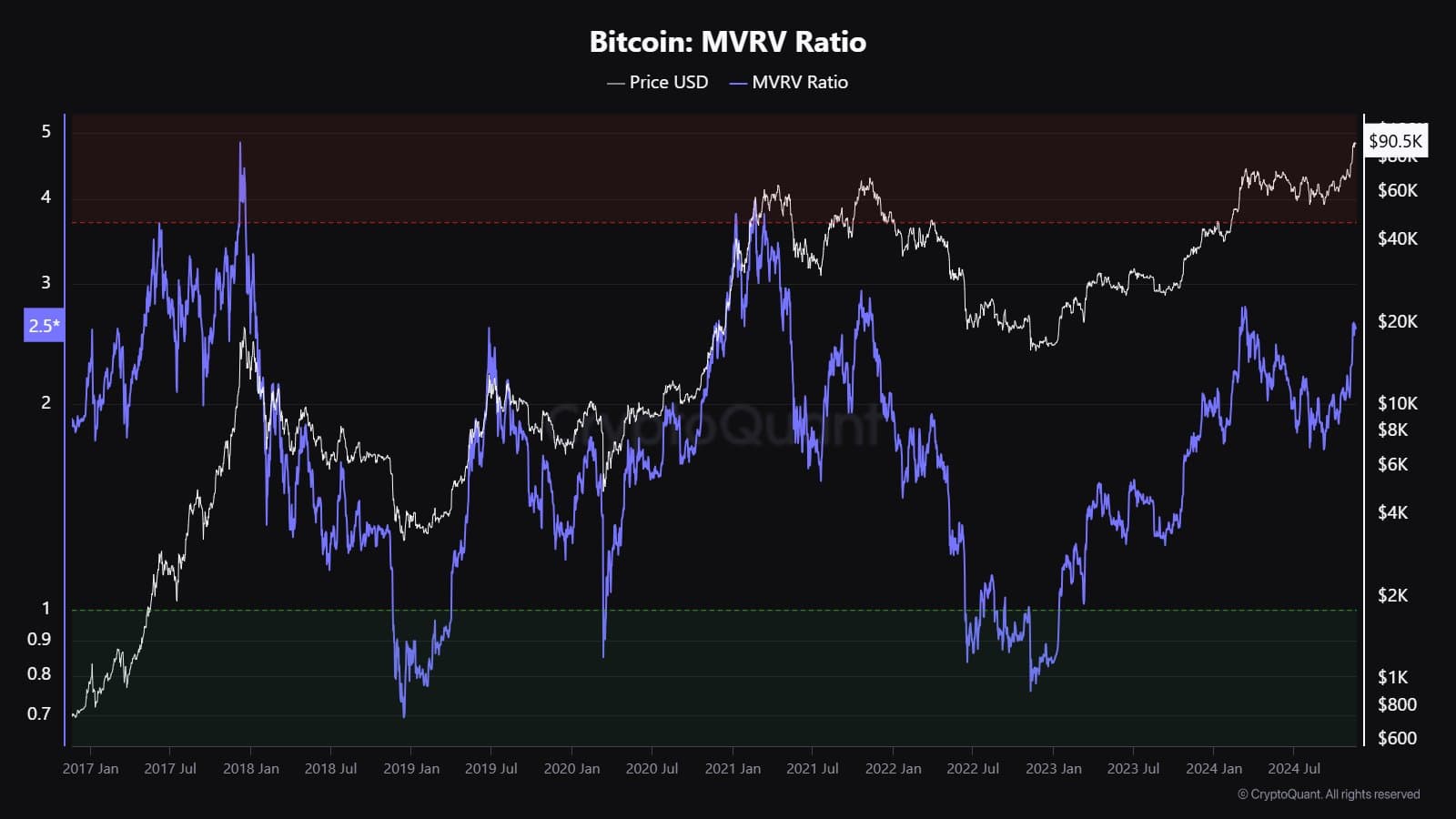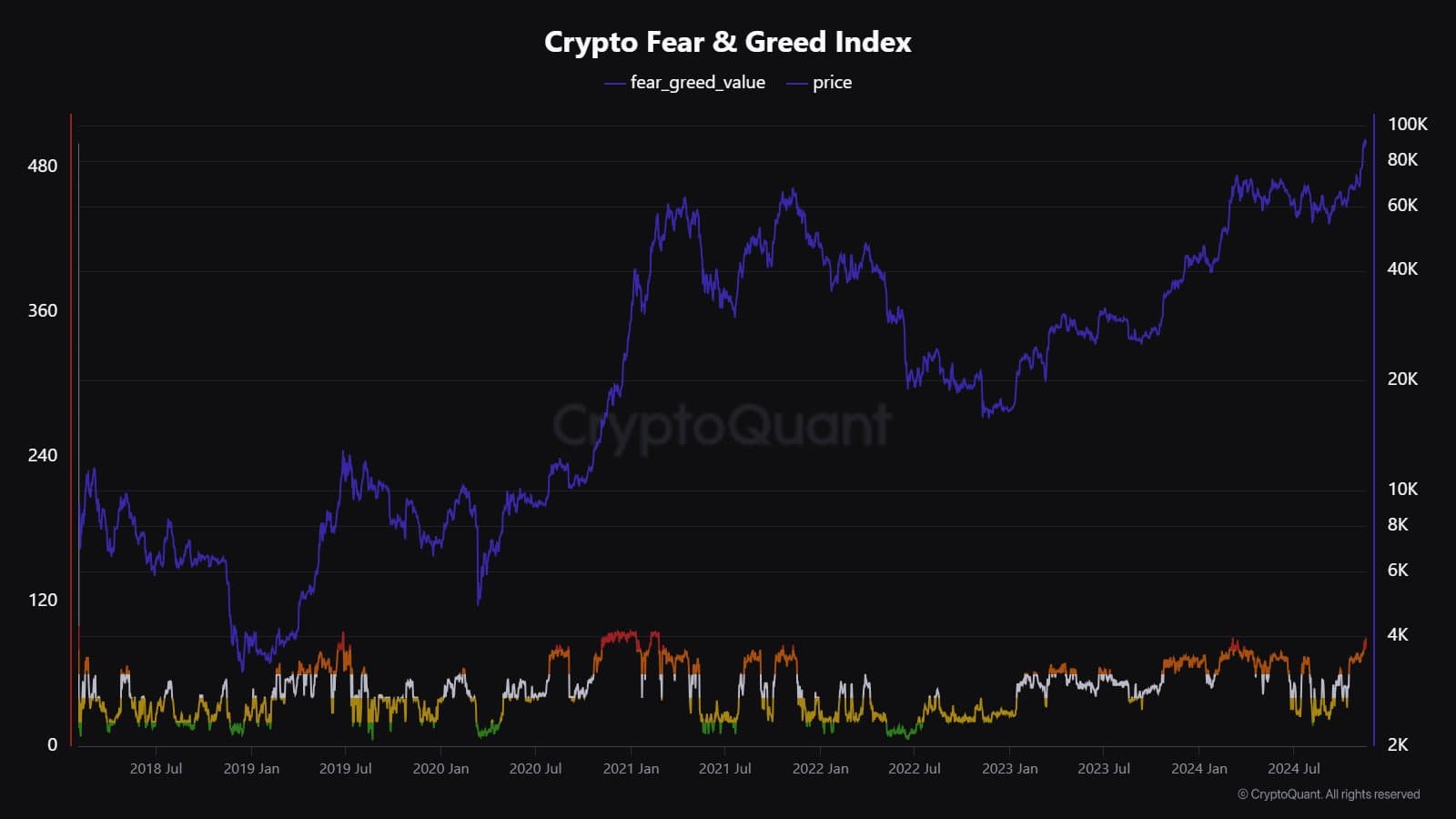Here’s When to Consider Selling Your Bitcoin, According to CryptoQuant
Several metrics, including the Fear and Greed Index, the Coin Days Destroyed, and the flow of new money into the market, can tell if it’s time to sell BTC.

As bitcoin (BTC) remains in its parabolic phase, the leading cryptocurrency continues to record new highs. A few hours ago, it crushed another milestone, surging to a new all-time high of $94,040. This rally has triggered concerns about selling to realize profits or continuing to hold among market participants.
An on-chain analysis by the market intelligence platform CryptoQuant has outlined some metrics to monitor, offering insights that could guide investors in deciding whether to sell BTC or keep holding.
Time to Sell or Hold?
According to CryptoQuant analysts, metrics like the Market Value to Realized Value (MVRV) Ratio and the Crypto Fear & Greed Index can time the BTC top to indicate when to sell.

Realized Price Bands represent the average cost basis of all BTC investors, while the MVRV ratio shows the profit or loss ratio in the Bitcoin market, and they work together. An MVRV ratio greater than 3.7 has historically signaled long-term market tops, a strong indication to sell. A high MVRV ratio shows significant unrealized profit among BTC investors, and market participants are likely to realize the gains soon.
The MVRV ratio is currently around 2.5, signaling that although there is substantial unrealized profit in the market, BTC is yet to hit a top.
Market Sentiment Among Long-term Holders
The Crypto Fear and Greed Index determines market sentiment by analyzing several factors, including volatility and social media trends. Greedy sentiment suggests proceeding with caution, while fear suggests going all in. The index is now at 83, and BTC is still rising, suggesting that investors are extremely greedy and that a top is near.
When BTC tops, long-term holders will start selling, driving the Coin Days Destroyed (CDD) metric above 15-20 million. CDD measures the destruction of Bitcoin’s age by multiplying the number of coins moved by the number of days the assets were dormant. This metric often spikes when long-term holders activate large amounts of dormant assets.

Bitcoin Realized Cap Growth
Furthermore, investors can tell when it is time to sell BTC by monitoring the growth of bitcoin’s realized capitalization. This indicator tells when new money is entering the market, which is needed for sustained price rallies. A low Realized Cap Growth suggests insufficient new money flow, signaling that the BTC price is about to experience pressure.
In addition, a decrease in the Inter-Exchange Flow Pulse (IFP), which means less BTC is moving from derivative exchanges, could be a sign that the asset has topped; hence, a bearish IFP suggests it is time to sell BTC.
The post Here’s When to Consider Selling Your Bitcoin, According to CryptoQuant appeared first on CryptoPotato.
What's Your Reaction?








































































































